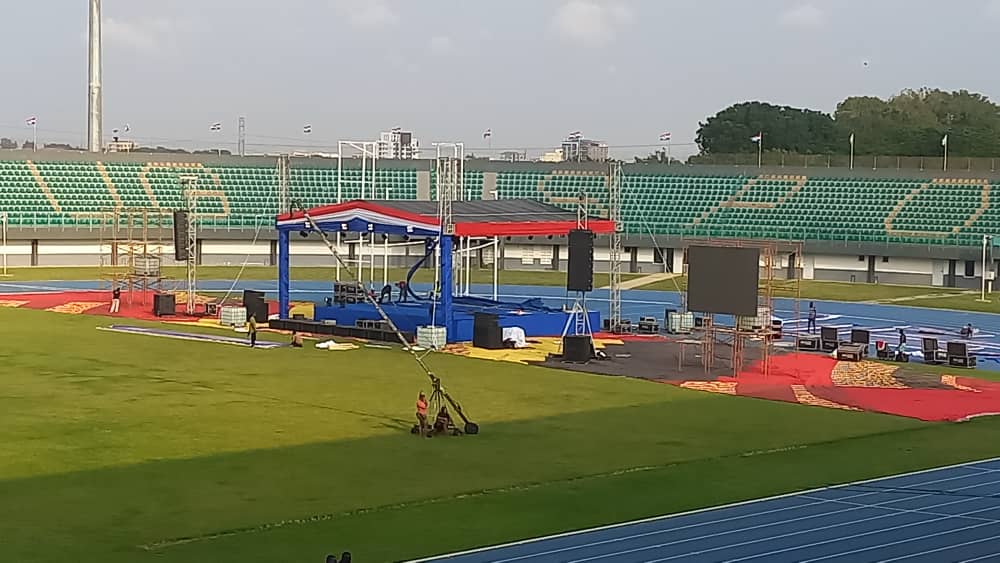Concerns are mounting over what critics describe as a disturbing pattern of political harassment and intimidation of prominent women under the current National Democratic Congress (NDC) administration led by President John Dramani Mahama and Vice President Professor Jane Naana Opoku-Agyemang.
The latest flashpoints involve high-profile women across the judiciary, electoral system, and opposition politics, sparking accusations that the NDC government is systematically targeting female leaders whose roles are vital to democratic governance.
Chief Justice under Fire
At the centre of the storm is Chief Justice Gertrude Araba Esaaba Torkornoo, who has come under intense political pressure since assuming office in 2023. Allegations of a coordinated effort to remove her from office have raised constitutional questions and concerns over judicial independence. Critics argue that the move mirrors past attempts by political actors to influence the judiciary.
In Ghana’s recent history, sitting Chief Justices have rarely faced removal campaigns, particularly on the scale being reported. Justice Torkornoo is the third female Chief Justice in Ghana’s history, after Justices Georgina Wood (2007–2017) and Sophia Akuffo (2017–2019), both of whom faced political criticism but were allowed to serve their full terms without efforts to forcefully remove them.
The latest developments have raised red flags among judicial observers and international human rights organizations.
Violence Against Former Minister Hawa Koomson
In a separate but related incident, former Minister for Fisheries and Aquaculture and ex-Member of Parliament for Awutu Senya East, Hon. Mavis Hawa Koomson, was reportedly assaulted in Ho during a community event last week. Eyewitness accounts allege that the attackers were aligned with the NDC, though investigations are ongoing.
Hawa Koomson, known for her outspokenness, previously survived political backlash in 2020 after discharging a firearm at a voter registration centre — an incident that was heavily politicized but never led to criminal prosecution. Her recent assault has renewed concerns about the personal safety of female politicians, especially in opposition circles.
Electoral Commission Under Threat
The NDC’s National Chairman, Johnson Asiedu Nketia, has also sparked controversy by calling for the removal of Electoral Commission Chairperson Jean Mensa and her deputies. Mensa, appointed in 2018, oversaw the contentious 2020 general elections, which the NDC challenged in court but ultimately lost.
Although political pressure on the Electoral Commission is not new in Ghana, direct threats of dismissal — especially without due process — have prompted worries about the erosion of institutional independence.
Historical Patterns and Gendered Attacks
The ongoing incidents have triggered broader questions about the NDC’s track record regarding women in public service. Analysts point to a worrying historical trend:
In 2008, then-candidate John Mahama referred to women in politics as needing to “stay behind and support,” drawing backlash from gender groups.
Women’s rights advocates argue that political leadership in Ghana — across the board — must do more to protect women from systemic abuse and harassment, especially when they occupy positions of power.
“This is bigger than politics,” said Dr. Angela Oforiwaa, a governance and gender policy analyst. “The pattern we’re seeing — whether it’s in the judiciary, electoral system, or parliament — suggests that powerful women are increasingly being targeted when they stand their ground.”
Calls for Protection and Accountability
Opposition figures and civil society organizations are calling for an immediate end to what they describe as a campaign of gender-based political persecution. They are demanding accountability, increased security for targeted individuals, and reaffirmation of Ghana’s constitutional protections for public servants, regardless of gender or political affiliation.
The NDC has not issued a formal statement responding to the allegations but party insiders have denied any organized campaign against women, labeling the accusations as “a smokescreen to cover up governance failures” by their critics.
As the 2026 general elections approach, many fear these incidents could signal a dangerous precedent — one where women in public office must choose between their safety and their service.


